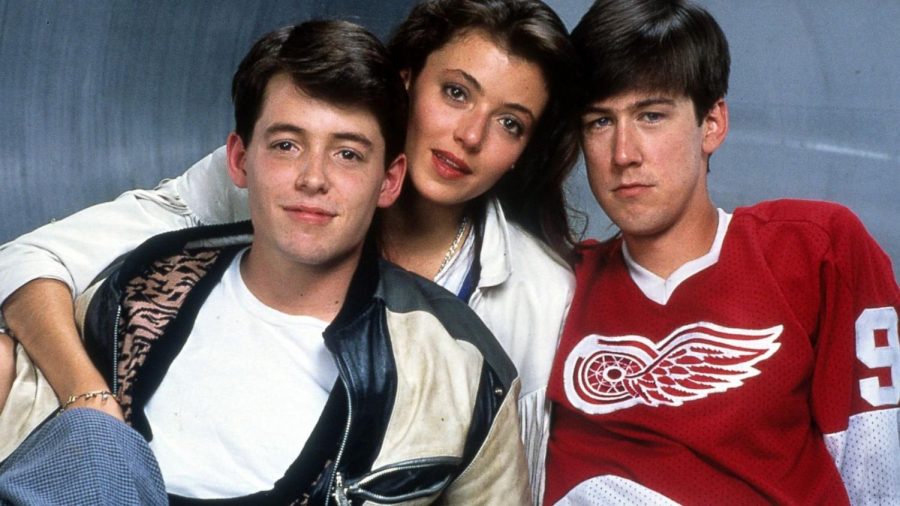Hollywood’s Banking on Your Favorites – but They Should Do it with Intent
“Ferris Bueller’s Day Off.” “Friends.” “Game of Thrones.” What do those titles incite in you? Memories of rainy Saturday afternoons, sneaking downstairs after your mom sent you up to bed or absolute adoration for CGI dragons? Well, whatever you’re feeling, the entertainment industry wants to capitalize on it — now.
If you’ve been paying attention to the pop culture sphere for the past few years, you probably noticed the onslaught of spin-offs, remakes and sequels of beloved film and television classics. At first it was fun. Seeing beloved characters come back for another ride, no matter how short the stint, was heartwarming and nostalgic, like the nearly two-hour long “Friends: The Reunion.”
After a while, though, the excitement wore off. Reboots, spin-offs and sequels do not feel like a special treat anymore. Shows and movies are no longer something to savor because now it feels like a guarantee that they will be back, if not always with the exact same premise or form.
Audiences like to feel respected and hate feeling duped. Of course, we are aware that we are seen merely as consumers in the eyes of production executives. Still, we don’t want to be treated like sheep blindly following their favorite “Where are they now?” star and forking over some money while we’re doing it.
The announcement of the “Ferris Bueller’s Day Off” spin-off is especially frustrating. The project will be spearheaded by the same team that brought us “Cobra Kai,” the television series spin-off of the “Karate Kid” franchise. Bueller’s spin-off will not focus on the titular character or even the supporting cast. Instead, the protagonists will be the two characters who took off in Cameron’s, one of the original main characters, father’s Ferrari. These two joy-riders were nameless until they had their very own movie — one I truly do not think anybody asked for — titled “Sam and Victor’s Day Off.”
While it might feel like this wave of beloved classics returning to our screens in slightly different ways is a new trend, the opposite is true. Hollywood revisits some of its classics every few years according to Dr. Matthew Jones, a Film Studies lecturer for an English university.
“There is actually a rich tradition of remakes in Western film culture that runs back to the earliest days of cinema (arguably as far back as 1896),” says Jones.
Rebooting fan-favorites is a cyclical trend that appears during times of financial hardship, according to Jones.
“Hollywood turns to remakes, sequels and adaptations at times of major economic upheaval, so, after the dot com crash and the economic fallout of 9/11, after the 2008 financial crisis,” explains Jones.
It’s no secret that the entertainment industry was impacted by the pandemic. With the closure of movie theaters and the ever-increasing volume of streaming services, production companies have had plenty of challenges to contend. On top of these challenges, people are less inclined to spend their money on something they believe won’t be worth it with rising inflation rates and the threat of an economic recession.
The wave of reboots and spin-offs is not because of a lack of creativity and originality among current film and television makers, but because of production companies’ desire to play it safe after a financially-challenging past few years.
While I understand the companies’ financial interest in rehashing old favorites, they should be doing so in an intentional way. Take movies like “A Star is Born” and “Little Women,” for example. Both movies have been re-made a handful of times, but each iteration has brought with it a new perspective and insight. 2019’s “Little Women,” for example, finally gave Amy March the respect she deserves.
Because of the great many ways that fan favorites have been reworked in the past, it makes projects like “Sam and Victor’s Day Off” feel even cheaper, because what can Sam and Victor add to the Ferris Bueller story? Will the movie be a fresh perspective that captures the magic of the original source material? Will the spin-off add anything substantial? To me, this particular spin-off and its subject matter sounds like Hollywood execs are really reaching toward the bottom of the barrel to find something that is almost guaranteed to turn a profit, based purely on the nostalgia factor alone.
A spin-off that provides a fresh perspective on the source material is “The Rings of Power,” a prequel to the “Lord of the Rings.” The show, which began airing earlier this month, is already receiving praise for giving its female characters more time in the sun than the original series (even though that bar was set extremely low). But reviewers are careful not to get too excited, lest “The Rings of Power” stoop to the same position as the “Game of Thrones” prequel series, “The House of the Dragon.”
Though “The House of the Dragon” is trying to set itself apart from the original, especially because of the “Game of Thrones” devastating final season, it seems to be falling into the same tired storylines. Specifically, gratuitous violence, oftentimes towards its female characters. Essentially, “House of the Dragon” feels like more of the same.
The monumental impact that the pandemic has had on the entertainment industry makes it unlikely that the spin-off trend will stall anytime soon. But film and television creators should focus their attention on adding something new to the source material they are rebooting or revisiting, or making sure they capture some of the original magic. If not, further repetition will only disinterest the audiences that production companies are so confident they have in the palm of their hands.
Nicole Braun, FCRH ’24, is an English major from Saddle River, N.J.

Nicole Braun is a senior from Saddle River, N.J. and she is thrilled to be a member of Volume 105! Her love for writing and editing led her to begin writing...










































































































































































































